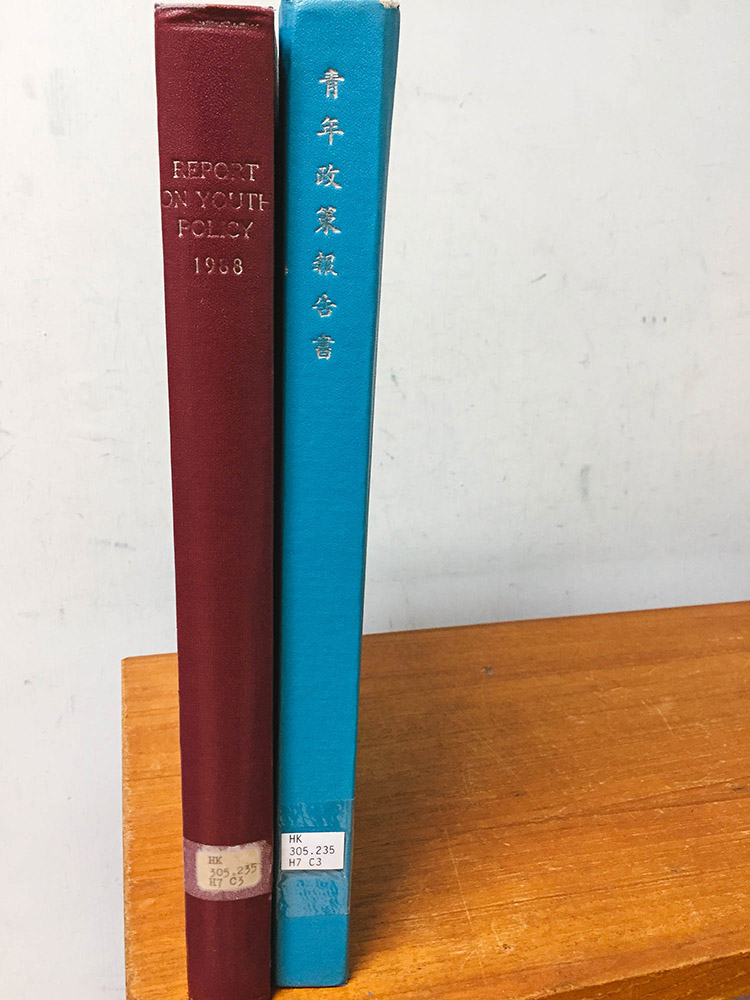History
OVERVIEW
In May 1986, the Central Committee on Youth (CCY) was established to examine the need for a youth policy in Hong Kong. After research, deliberation and public consultation, the CCY published the Report on the Need for a Youth Policy in Hong Kong in January 1989. It recommended the colonial Government to formulate a youth policy and establish a Commission on Youth (CoY) for the task.
The CCY’s recommendation for a youth policy was rejected by the then Governor David Wilson, though itsrecommendation for establishing the COY was accepted. The CoY was set up and it subsequently issued a non - binding Charter for Youth.
Timeline
1993
The final "Charter for Youth" was published.
The final "Charter for Youth" was published as a non-binding document open for voluntary subscription. It contained 3 sections: "Pledge" (with 10 ideals and principles on youth development), "Recognition" (stating the rights of youth) and "Consideration" (stating the social goals for youth development). For the full text, go to: http://www.hab.gov.hk/en/youth/
1992
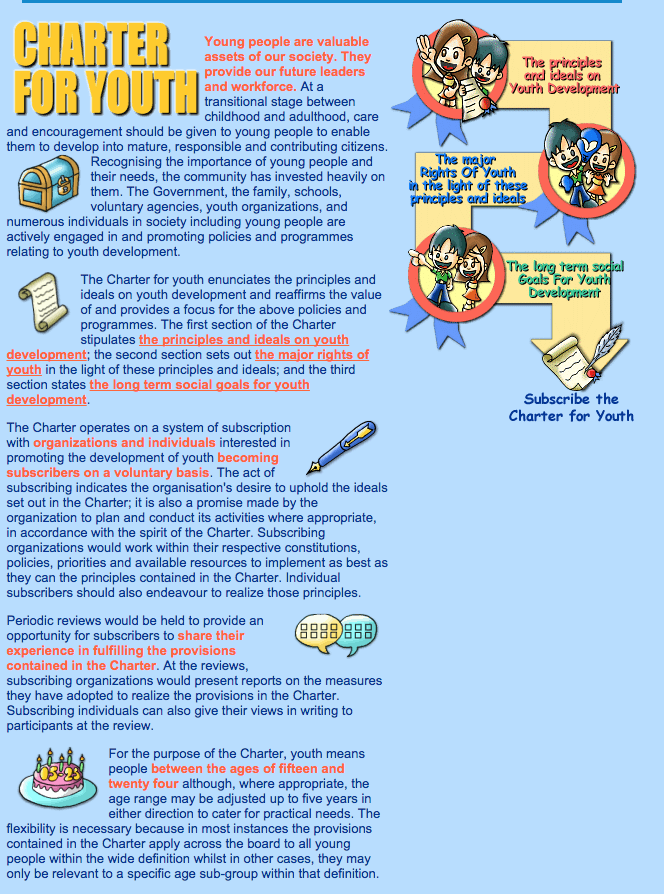
Draft "Charter for Youth" was released for public consultation.
CoY proposed to have a "Charter for Youth" that would operate on a system of voluntary subscription, with the Government being the key subscriber. It proclaimed the rights of young people, their needs and aspirations and the social goals for youth development.
1990.02

The Commission on Youth (CoY) was established.
CoY was established, based largely on the terms of reference proposed by the CCY. The CoY was to advise the Government on all matters pertaining to youth. Mrs. Rosanna Tam was appointed as the first chairlady of the CoY.
1989.10
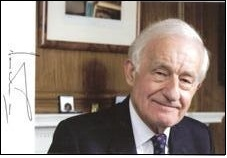
HK Governor rejected CCY's proposal for a youth policy.
At a public address, then Governor David Wilson turned down the CCY's proposal for a youth policy, but agreed to setting up an advisory body for youth matters and to having a non-binding charter for youth.
1989
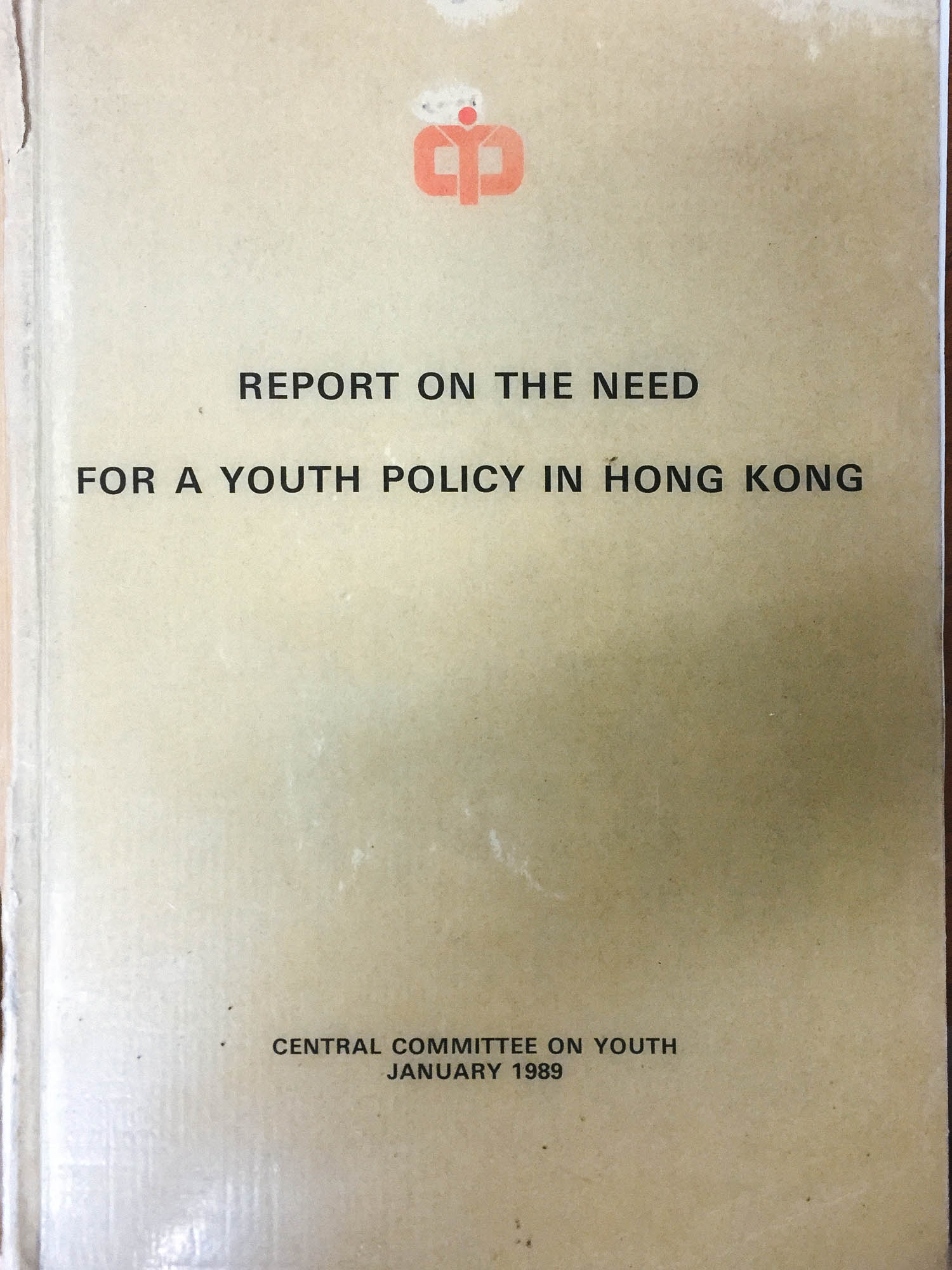
CCY proposed forming a youth policy and an advisory body in its final "Report on the Need for a Youth Policy".
The CCY endorsed and published the Working Party's report. It advised the Government to formulate a youth policy containing principles for youth development and an advisory body to oversee the task.
1988.09
CCY's public consultation on youth policy ended.
The majority of the public supported having a youth policy and setting up a Commission on Youth (CoY).
1988.05.11
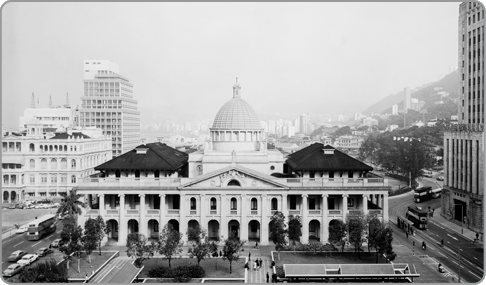
A Legislaive Council motion was moved regarding the "Report on Youth Policy".
Mrs. Rosanna Tam moved a motion on the CCY Working Party's Report. Her opening speech explained the public support for a youth policy in light of contemporaneous circumstances. 14 Legislative Councillors supported the motion.
1988.04.25
CCY Working Party released the "Report on Youth Policy".
The Working Party surveyed public opinion on the need for a youth policy, reviewed youth policies overseas, and analysed developmental trends as well as existing youth programmes in HK. It found that HK youth development would benefit from a clearer policy direction and better coordination in allocating resources, and recommended forming a youth policy with principles for youth development and an advisory body.
The Central Committee on Youth (CCY) was set up.
The Central Committee on Youth (CCY) was set up, which in turn formed a Working Party, chaired by Mrs. Rosanna Tam, to examine the need for a youth policy in HK.
1983
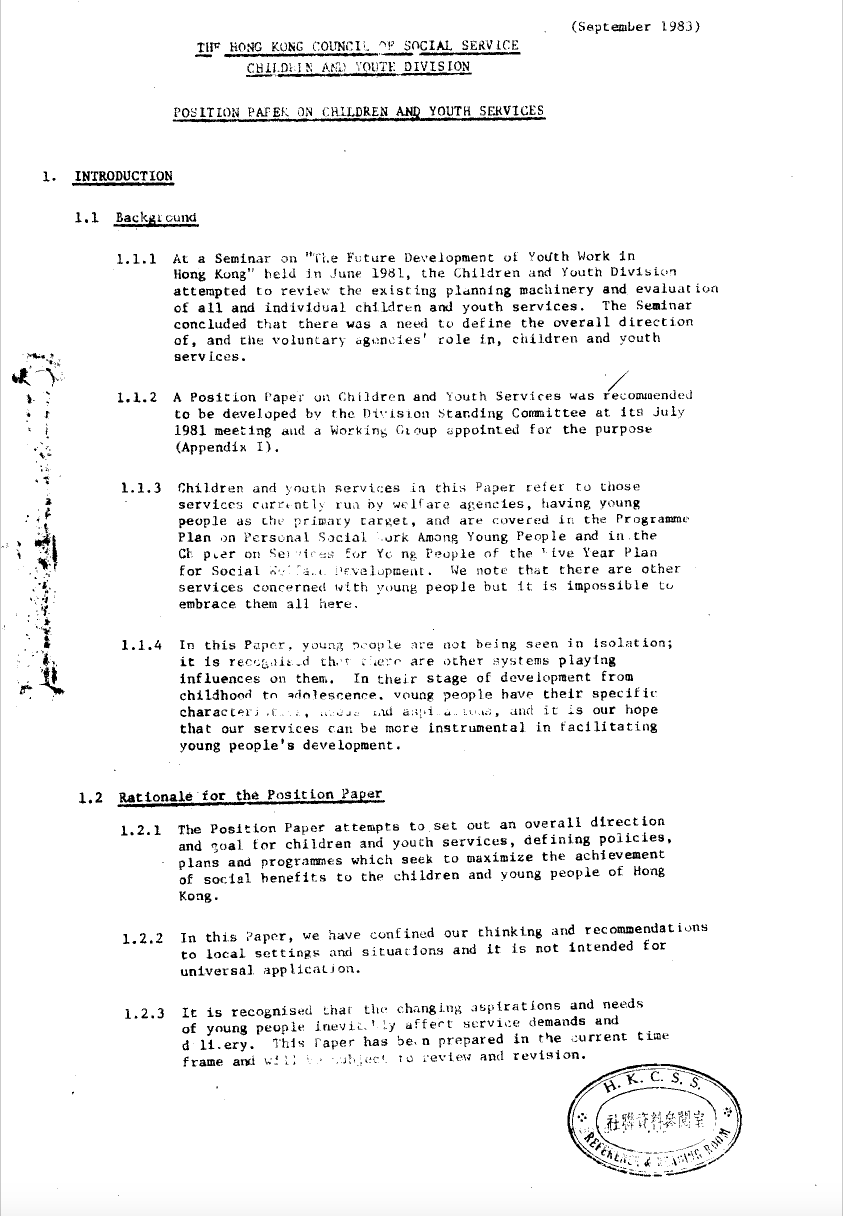
HKCSS recommended setting up a Central Coordinating Committee for youth programmes.
The HKCSS's "Position Paper on Children and Youth Services" suggested forming a Central Coordinating Committee to improve the coordination of youth programmes.
1973
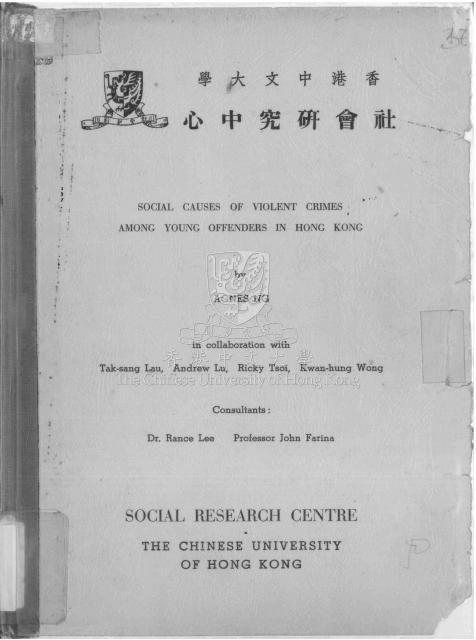
CUHK suggested a youth policy to address juvenile delinquency.
The Government commissioned CUHK to investigate the social conditions underlying rising juvenile delinquency. In its report, "The Social Causes of Violent Crimes Among Young Offenders in HK", CUHK recommended having a comprehensive youth policy to set a clear direction for youth services and a consultative committee on youth affairs. These suggestions were not acted upon.
1972

HKCSS formed a Working Group on youth policy.
The Hong Kong Council of Social Services (HKCSS)'s Working Group, in its draft report, raised the need for a youth policy to provide comprehensive development and training opportunities for young people. It was not endorsed by the HKCSS's Management Committee.
1972

United Nations youth expert, Spergel, advised formulating a youth policy.
In Dr. Irving Spergel's report "Planning for Youth Development: The Hong Kong Experience" prepared for the Government, Spergel criticised the lack of a policy direction and coordination, and advised forming a long-term youth policy and setting up a Standing Committee on Social Development of Youth. Spergel's recommendations were not accepted.



